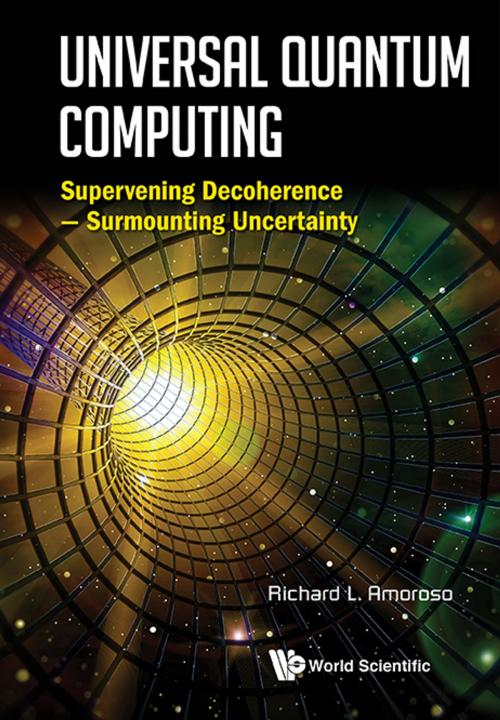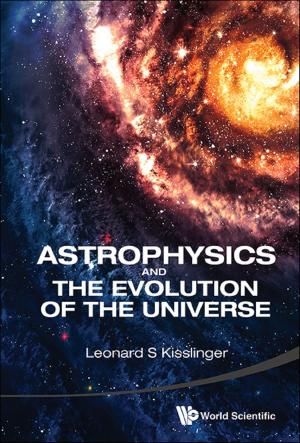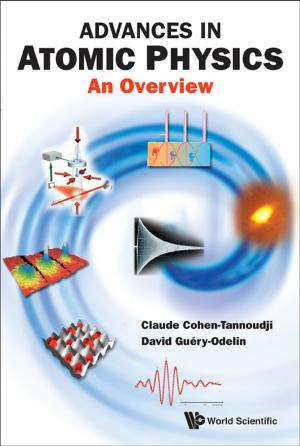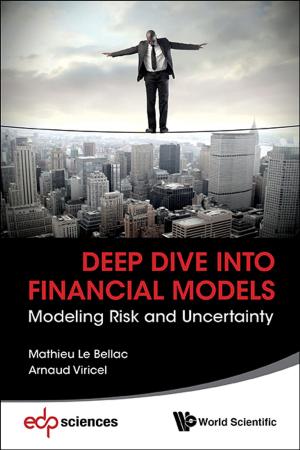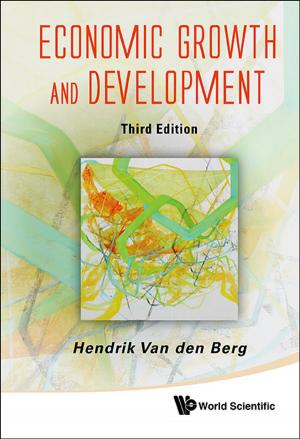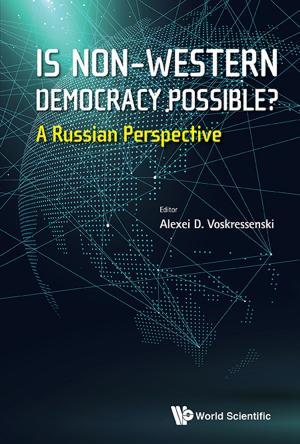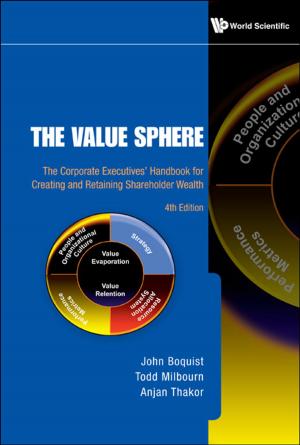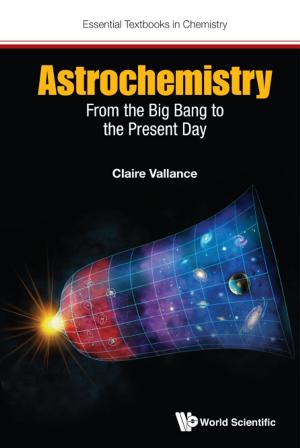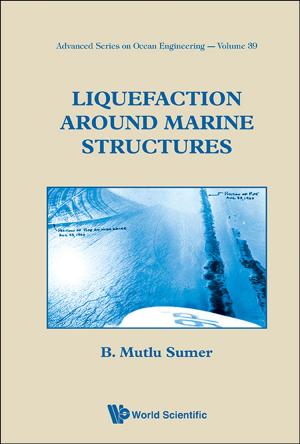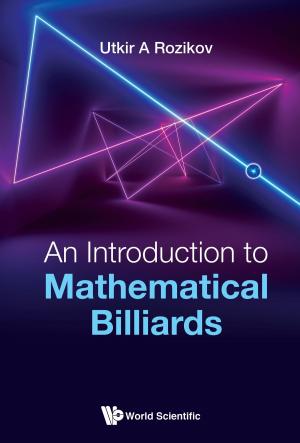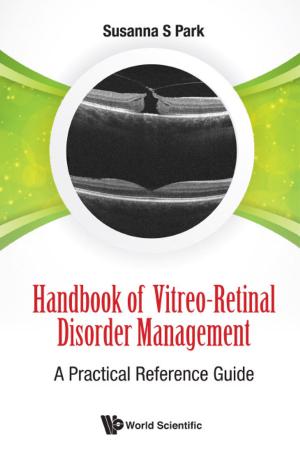Universal Quantum Computing
Supervening Decoherence — Surmounting Uncertainty
Nonfiction, Science & Nature, Science, Physics, Nuclear Physics, Quantum Theory| Author: | Richard L Amoroso | ISBN: | 9789813146013 |
| Publisher: | World Scientific Publishing Company | Publication: | January 23, 2017 |
| Imprint: | WSPC | Language: | English |
| Author: | Richard L Amoroso |
| ISBN: | 9789813146013 |
| Publisher: | World Scientific Publishing Company |
| Publication: | January 23, 2017 |
| Imprint: | WSPC |
| Language: | English |
This breakthrough volume touts having dissolved the remaining barriers to implementing Bulk Universal Quantum Computing (UQC), and as such most likely describes the most advanced QC development platform. Numerous books, hundreds of patents, thousands of papers and a Googolplex of considerations fill the pantheon of QC R&D. Of late QC mathemagicians claim QCs already exist; but by what chimeric definition. Does flipping a few qubits in a logic gate without an algorithm qualify as quantum computing? In physics, theory bears little weight without rigorous experimental confirmation, less if new, radical or a paradigm shift. This volume develops quantum computing based on '3rd regime' physics of Unified Field Mechanics (UFM). What distinguishes this work from a myriad of other avenues to UQC under study? Virtually all R&D paths struggle with technology and decoherence. If highly favored room-sized cryogenically cooled QCs ever become successful, they would be reminiscent of the city block-sized Eniac computer of 1946. The QC prototype proposed herein is room temperature and tabletop. It is dramatically different in that it is not confined to the limitations of quantum mechanics; since it is based on principles of UFM the Uncertainty Principle and Decoherence no longer apply. Thus this QC model could be implemented on any other quantum platform!
Contents:
- From Concept to Conundrum
- Cornucopia of Quantum Logic Gates
- Multiverse Cosmology — A New Basis of Reality
- A Revolution in the Conception of Matter
- From Qubits to Relativistic (R-Qubits)
- Utility of Unified Field Mechanics
- Surmounting Uncertainty Supervening Decoherence
- Measurement with Certainty
- Topological Quantum Field Theory
- Topological Quantum Computing
- A New Group of Transformations
- Ontological-Phase Topological Field Theory
- New Classes of Quantum Algorithms
- Class II Mesoionic Xanthines as Potential Ten Qubit Substrate Registers
- Universal Quantum Computing Prototype Modeling
Readership: Graduate students and researchers interested in quantum computing or quantum information.
Key Features:
- Unique in solving remaining problem of decoherence
- Introduces relativistic qubit model with additional degrees of freedom
- Operationally surmounts the Quantum Uncertainty Principle
This breakthrough volume touts having dissolved the remaining barriers to implementing Bulk Universal Quantum Computing (UQC), and as such most likely describes the most advanced QC development platform. Numerous books, hundreds of patents, thousands of papers and a Googolplex of considerations fill the pantheon of QC R&D. Of late QC mathemagicians claim QCs already exist; but by what chimeric definition. Does flipping a few qubits in a logic gate without an algorithm qualify as quantum computing? In physics, theory bears little weight without rigorous experimental confirmation, less if new, radical or a paradigm shift. This volume develops quantum computing based on '3rd regime' physics of Unified Field Mechanics (UFM). What distinguishes this work from a myriad of other avenues to UQC under study? Virtually all R&D paths struggle with technology and decoherence. If highly favored room-sized cryogenically cooled QCs ever become successful, they would be reminiscent of the city block-sized Eniac computer of 1946. The QC prototype proposed herein is room temperature and tabletop. It is dramatically different in that it is not confined to the limitations of quantum mechanics; since it is based on principles of UFM the Uncertainty Principle and Decoherence no longer apply. Thus this QC model could be implemented on any other quantum platform!
Contents:
- From Concept to Conundrum
- Cornucopia of Quantum Logic Gates
- Multiverse Cosmology — A New Basis of Reality
- A Revolution in the Conception of Matter
- From Qubits to Relativistic (R-Qubits)
- Utility of Unified Field Mechanics
- Surmounting Uncertainty Supervening Decoherence
- Measurement with Certainty
- Topological Quantum Field Theory
- Topological Quantum Computing
- A New Group of Transformations
- Ontological-Phase Topological Field Theory
- New Classes of Quantum Algorithms
- Class II Mesoionic Xanthines as Potential Ten Qubit Substrate Registers
- Universal Quantum Computing Prototype Modeling
Readership: Graduate students and researchers interested in quantum computing or quantum information.
Key Features:
- Unique in solving remaining problem of decoherence
- Introduces relativistic qubit model with additional degrees of freedom
- Operationally surmounts the Quantum Uncertainty Principle
